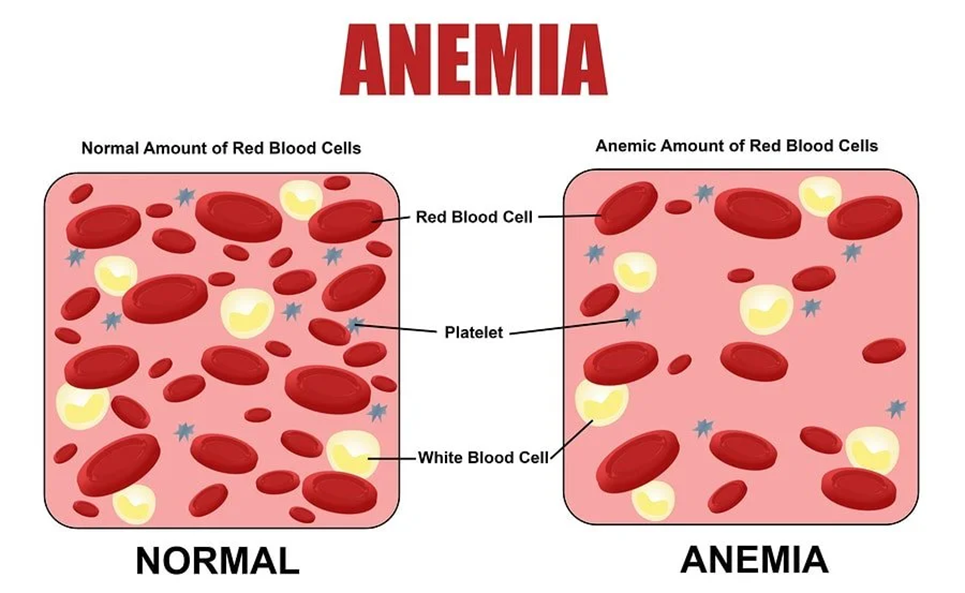The nurse is educating a mother on how to prevent iron deficiency anemia in her healthy full-term 6-month-old infant. Which action should the nurse recommend to the parents to feed their child who is still breastfeeding?
Peanuts
Iron (ferrous sulfate) tablets
Sautéed liver
Iron-fortified baby cereal
The Correct Answer is D
Choice A reason:
Peanuts are not recommended for infants, especially those under one year of age, due to the risk of choking and potential allergies. Additionally, peanuts are not a significant source of iron and would not be effective in preventing iron deficiency anemia in infants. Therefore, this choice is not appropriate for preventing iron deficiency anemia in a 6-month-old infant.
Choice B reason:
Iron (ferrous sulfate) tablets are not typically recommended for infants unless prescribed by a healthcare provider. Infants who are exclusively breastfed or partially breastfed should receive iron supplementation starting at 4-6 months of age, but this is usually in the form of liquid drops rather than tablets. It is important to follow the guidance of a healthcare provider when administering iron supplements to infants.
Choice C reason:
Sautéed liver is a rich source of iron, but it is not suitable for a 6-month-old infant. Introducing solid foods to infants should be done gradually, starting with iron-fortified cereals and pureed fruits and vegetables. Liver can be introduced later as part of a balanced diet, but it is not the first choice for preventing iron deficiency anemia in a young infant.
Choice D reason:
Iron-fortified baby cereal is the recommended choice for preventing iron deficiency anemia in a 6-month-old infant who is still breastfeeding. These cereals are specifically designed to provide the necessary iron that infants need as they transition to solid foods. Starting with iron-fortified cereals helps ensure that the infant receives adequate iron to support healthy growth and development.

Nursing Test Bank
Naxlex Comprehensive Predictor Exams
Related Questions
Correct Answer is D
Explanation
Choice A reason:
Marbles are not a safe play activity for a 3-year-old in a spica cast. Marbles are small and can pose a choking hazard. Additionally, playing with marbles requires fine motor skills and movement that may be restricted by the cast.
Choice B Reason:
Watching a movie is a safe activity but does not provide developmental benefits. While it can keep the child entertained, it does not engage the child in active play or promote cognitive and motor development.
Choice C Reason:
A game of checkers may be too advanced for a 3-year-old. It requires understanding of rules and strategic thinking, which may be beyond the developmental stage of a child this age. Additionally, it may not be engaging enough to hold the child’s attention.
Choice D Reason:
Playing with a toy telephone is an appropriate activity for a 3-year-old in a spica cast. It is safe and can be done while the child is in a stationary position. This activity encourages imaginative play and can help with language development and social skills.
Correct Answer is C
Explanation
Choice A reason:
Foster self-care activities: Encouraging self-care activities is important for children with hemiplegic cerebral palsy as it promotes independence and self-esteem. However, it is not the highest priority compared to ensuring the child’s safety and accessibility in their home environment.
Choice B Reason:
Improve the child’s communication skills: Enhancing communication skills is crucial for the child’s social and emotional development. Effective communication can significantly improve the child’s quality of life. However, while important, it is not the most immediate priority compared to modifying the home environment for safety.
Choice C Reason:
Modify the home environment for safety and accessibility: Ensuring the home environment is safe and accessible is the top priority. Children with hemiplegic cerebral palsy may have mobility challenges, and a safe environment can prevent injuries and promote independence. This modification directly impacts the child’s daily life and overall well-being.
Choice D Reason:
Provide respite services for the parents: Offering respite services is beneficial for the parents’ mental and emotional health, allowing them to take breaks and recharge. While this is important, it is not the primary concern compared to the child’s immediate safety and accessibility needs.
Whether you are a student looking to ace your exams or a practicing nurse seeking to enhance your expertise , our nursing education contents will empower you with the confidence and competence to make a difference in the lives of patients and become a respected leader in the healthcare field.
Visit Naxlex, invest in your future and unlock endless possibilities with our unparalleled nursing education contents today
Report Wrong Answer on the Current Question
Do you disagree with the answer? If yes, what is your expected answer? Explain.
Kindly be descriptive with the issue you are facing.
